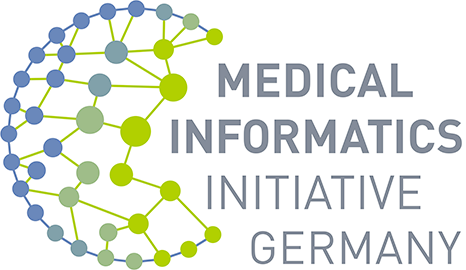Responsible treatment of staphylococcal infections
The more often patients are exposed to an antibiotic, the more likely it is that resistance will develop. As a result, antibiotic therapy becomes ineffective and the risk of drug-related side effects increases. The targeted use of antibiotics can reduce mortality from bloodstream infections caused by the bacterium Staphylococcus aureus by up to 50 percent.
However, when staphylococci are found in a blood culture, the medical significance of the finding is often questionable. In 75 per cent of cases, it is not an infection but contamination of the blood culture by coagulase-negative staphylococci, which are part of the normal skin flora. However, in clinical practice, antibiotics are often given when these staphylococci are found.
The HELP App developed by the SMITH Consortium, helps clinicians to diagnose and treat staphylococcal bloodstream infections and guides them in the responsible use of antibiotics.
HELP App supports guideline-based antibiotic therapy
In the HELP project, a study was carried out between 2020 and 2022 at five German university hospitals in Aachen, Essen, Halle, Jena and Leipzig. The Jena University Hospital took the lead. The project was carried out in two phases: In the first phase, the HELP Manual was made available to clinicians as an electronic handbook. It provided information on the diagnosis and treatment of staphylococcal bloodstream infections and could be used as an app on stationary and mobile devices. In the second phase, the HELP App was to be developed as a medical device in accordance with the European Union Medical Device Regulation.
From August 2020 to the end of October 2022, all five university hospitals worked with the HELP Manual, with more than 130 wards and over 7,800 patients included in the study. A digital survey on the use of the HELP Manual is currently being conducted at all participating sites. The results of the survey will be included in a publication of the overall results of the HELP study.
Provision of routine medical data by the Data Integration Centres was demonstrated
Another aim of HELP was to validate the functionality of the Data Integration Centres established within the SMITH Consortium. This involved making routine healthcare data accessible, ensuring its quality and using it in anonymised form for the study evaluation. At the Data Integration Centres, the data needed for the study were converted into an interoperable format and made available for research. The interoperable data format is based on the HL7 FHIR standard and the core data set of the Medical Informatics Initiative. Extracting the data from the heterogeneous primary healthcare IT systems and making it available in FHIR proved to be a particular challenge.
The experience gained from the HELP project in the development of computer-based decision support systems is currently being evaluated. These experiences have been incorporated into the follow-up project “fit4translation project”, which addresses, among other things, the regulatory framework for the development of software as a medical device.
„We want to make the work of infectiologists in normal and intensive care units easier through jointly developed IT systems, for example to avoid over- and under-use of antibiotics“.
Prof. Dr. André Scherag 1st Spokesman SMITH Consortium, Director of the Institute of Medical Statistics, Computer and Data Sciences (IMSID) | Jena University Hospital
Read more about the results in the HELP Use Case:
- Hagel S, Gantner J, Spreckelsen C, Fischer C, Ammon D, Saleh K, Phan-Vogtmann LA, Heidel A, Müller S, Helhorn A, Kruse HM, Thomas E, Rißner4 F, Haferkamp S, Vorwerk J, Deffge S, Juzek-Küpper MF, Lippmann N, Lübbert C, Trawinski H, Wendt S, Wendt T, Dürschmid A, Konik M, Moritz S, Tiller D, Röhrig R, Pletz M, Scherag A: A hospital-wide electronic medical record-based computerized decision support system to improve outcomes of patients with staphylococcal bloodstream infection (HELP). Study protocol for a multicenter stepped-wedge cluster randomized trial. BMJ Open 2020;10(2):e033391. DOI:10.1136/bmjopen-2019-033391
- Scherag A, Alaid S, Ammon D, Brandes J, Dürschmid A, Fortmann J, Friebel K, Hagel S, He D, Hetfeld P, Geihs S, Ihle R, Kahle S, Koi V, Konik M, Kretzschmann F, Kruse H, Lippmann N, Lübbert C, Marx G, Mikolajczyk R, Moritz S, Müller C, Müller S, Palm J, Pérez Garriga A, Pethukova J, Pietzner D, Popp M, Rebenstorff M, Renz J, Rißner F, Röhrig R, Saleh K, Schlöcker A, Schönherr S, Spreckelsen C, Stahlmann J, Stolz A, Thon S, Thomas E, Tiller D, Wendt S, Wendt T, Winnekens P, Witzke O, Pletz M: Use Case HELP ‒ Nutzung der Datenintegrationszentren für eine Evaluationsstudie und vorläufige Ergebnisse. In: Science Day 2022:Abstractbook|23.11.2022; ISBN:978-3-00-074019-0
- Pérez Garriga A, Fortmann J, Röhrig R, Majeed R W, Lipprandt M: Entwicklung eines CDSS im akademischen Bereich im Rahmen der Medical Device Regulation. In:Science Day 2022:Abstractbook|23.11.2022; ISBN:978-3-00-074019-0
- Pérez Garriga A, Fortmann J, Spreckelsen C, Scherag A, Majeed RW, Röhrig R, Lipprandt M: The European medical device regulation - Lessons learned from SMITH-HELP. In: 67. Jahrestagung der Deutschen Gesellschaft für Medizinische Informatik, Biometrie und Epidemiologie e. V. (GMDS), 13. Jahreskongress der Technologie- und Methodenplattform für die vernetzte medizinische Forschung e.V. (TMF)., 21.-25.08.2022. Düsseldorf: German Medical Science GMS Publishing House; 2022. DocAbstr. 62. DOI: 10.3205/22gmds041



